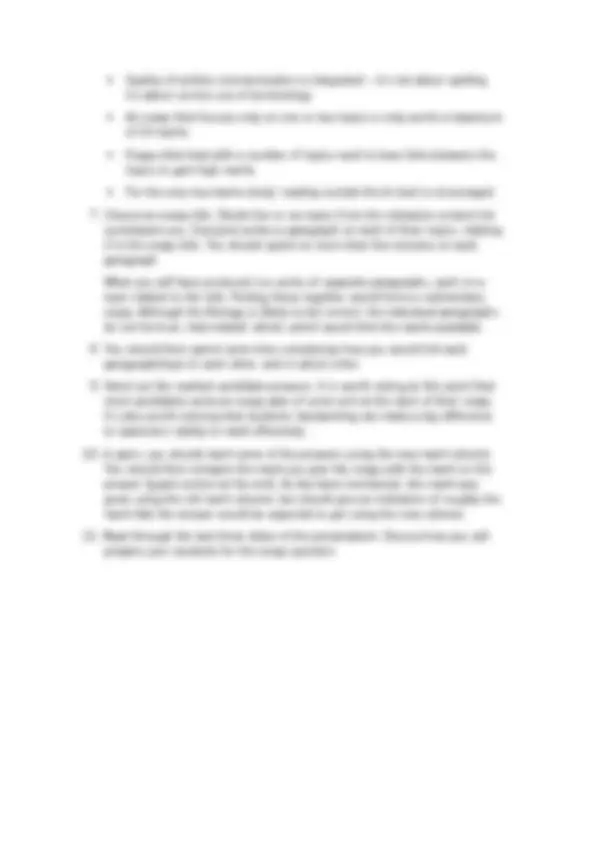



Study with the several resources on Docsity

Earn points by helping other students or get them with a premium plan


Prepare for your exams
Study with the several resources on Docsity

Earn points to download
Earn points by helping other students or get them with a premium plan
Community
Ask the community for help and clear up your study doubts
Discover the best universities in your country according to Docsity users
Free resources
Download our free guides on studying techniques, anxiety management strategies, and thesis advice from Docsity tutors
The Biology essay produces a very satisfactory range of marks from all candidates, showing that it allows candidates of all abilities to demonstrate their ...
Typology: Exams
1 / 3

This page cannot be seen from the preview
Don't miss anything!


This resource is designed to help you to plan your teaching to prepare students for the essay in A-level Paper 3. It has been designed for a number of teachers in the same department to work together, but could be adapted for single teachers, or for use with students. Throughout the development of our new A-level Biology specification, we spoke to teachers and university experts. We were told that extended writing was an important skill that students should be developing. The 25 mark essay has been an element of our A-levels for many years, going back several specifications. It is at its heart a synoptic essay. Students who write in detail on one single area will not gain high marks. They must instead demonstrate their ability to draw together concepts from throughout the course and relate them to the title given. At first, you can worry that this is difficult for your students and will mean a large amount of marking. In many ways, essays are a much more positive way of assessing than other forms of question that cover large areas of the specification. As there are two titles, students can pick the one that bests fits their knowledge of Biology and show what they know. The Biology essay produces a very satisfactory range of marks from all candidates, showing that it allows candidates of all abilities to demonstrate their knowledge. The graph below shows the spread of marks for all candidates in the Biology essay in 2014.
As would be expected, it is difficult, but not impossible, to gain full or almost full marks in the essay. What is perhaps even more reassuring is that very few students gain little or no marks. This shows how even the weakest candidates can gain marks by writing something on the essay and shows that it is worth putting time into preparation of all students.
Teacher guide to A-level essay contains four elements:
A training schedule – showing how a CPD session could be run with teachers A presentation – covering the major points of the essay
A set of past paper essay titles and the indicative content from the mark schemes A set of essays that have previously been marked.
The mark scheme for the Biology essay is changing. Previously, it included several elements. Each essay was separately marked on four areas: quality of written communication (QWC), breadth, content and relevance. The new specification uses a ‘level of response’ mark scheme which combines all four of these areas into one set of marking guidelines. Comments on the previously marked questions relate to the previous mark scheme. With a slightly different mark scheme, it is likely that there would be slight changes to the marks given to any given essay, so the marks shown should be seen as indicative only.
Are the titles what you would expect? Are there titles that you would immediately identify as easier to answer than others?